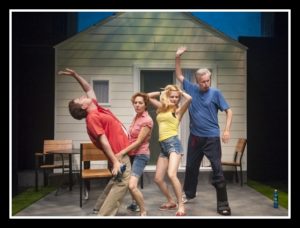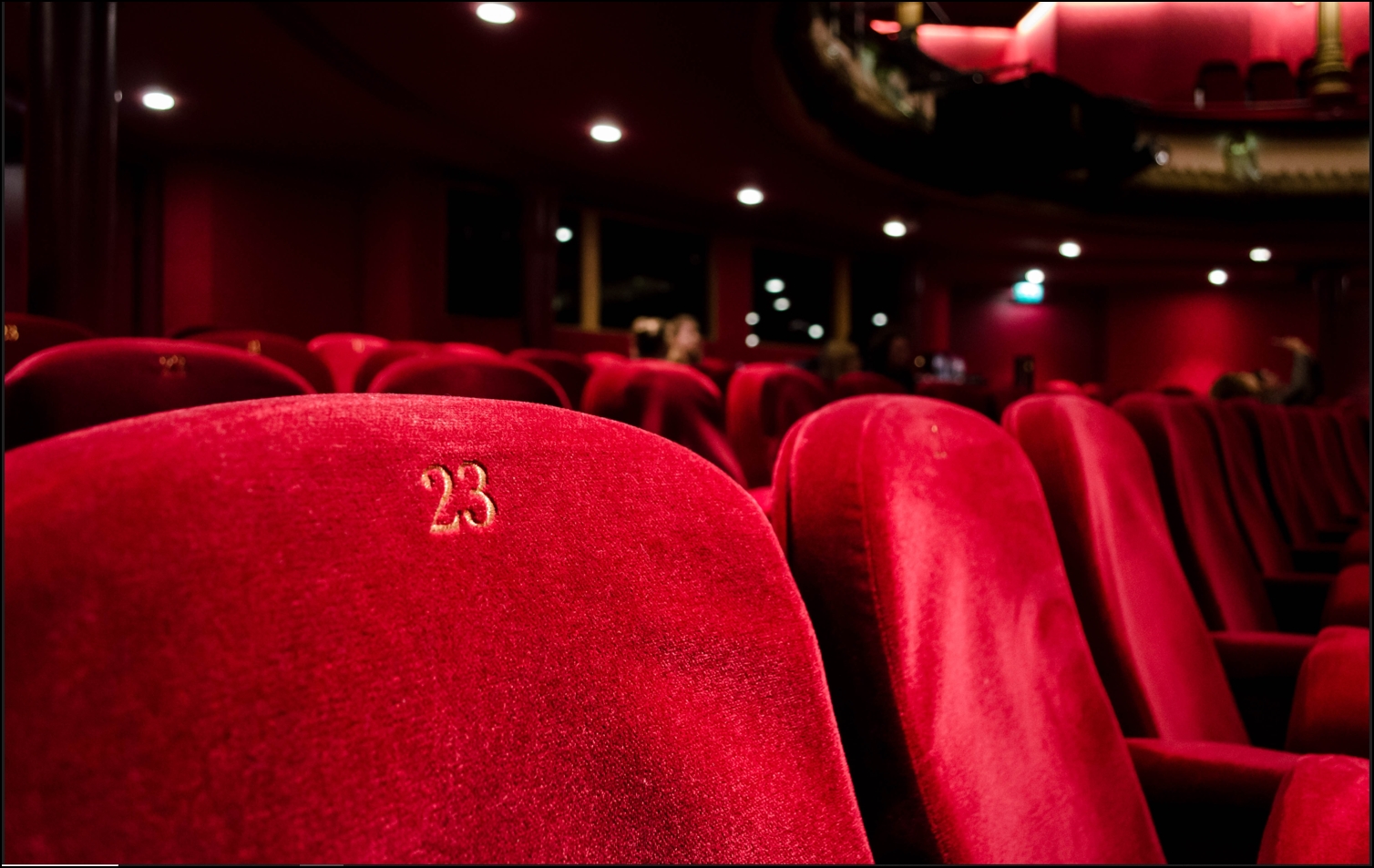 A 2011 Pulitzer Prize finalist, Detroit is as humorous as it is sharp. With tight writing by Lisa D’Amour (Airline Highway), the critically acclaimed play skillfully tangles the lives of a seemingly responsible older couple and a younger, more careless pair. Josh Costello ably directs Aurora Theater’s production in Berkeley, which leaves some in the audience diffident at best.
A 2011 Pulitzer Prize finalist, Detroit is as humorous as it is sharp. With tight writing by Lisa D’Amour (Airline Highway), the critically acclaimed play skillfully tangles the lives of a seemingly responsible older couple and a younger, more careless pair. Josh Costello ably directs Aurora Theater’s production in Berkeley, which leaves some in the audience diffident at best.
A friendly BBQ serves as a façade to the wreckage ahead in this well-structured expose’ on American life that shows just how distrusting people should be of others during oppressive economic times. At the outset, Ben (Jeff Garrett) and Mary (Amy Resnick) are a sharply drawn lower-middle class couple who fire up the grill for an All-American BBQ to welcome Sharon (Luisa Frasconi) and Kenny (Patrick Jones), a couple of drifters who move into the house next door — sans furniture.
As the neighborhood foursome bonds over backyard barbecues, remembered dreams and helping hands, their neighborly connection gets personal and accelerates into unanticipated directions, which threatens to ignite more than just their friendship.
Jeff Garrett is a Dick Van Dyke clone—with loose limbs, a rubbery face, and impeccable comedic timing. Even when the play’s focus is elsewhere, his impressive and adept listening and reactionary skills command attention. While most actors simply wait for their turn to speak, Mr. Garrett has truly mastered the art of active listening. Luisa Frasconi is, well, simply an amazing talent in bloom. It takes no stretch of the imagination to say that, one day, in the not-too-distant-future, we will all be paying large sums to see this funny, gifted lady work. Patrick Jones and Amy Resnick are solid performers.
Mr. Costello’s direction takes full advantage of the intimate space that is Aurora Theater’s main stage. His stage pictures are well-chosen, and his blocking, which can be tricky in a thrust environment like Aurora’s, almost always works smoothly.
The lighting design by Kurt Landisman is precise and skillful, at times even approaching ingenious. While most of the production is set outside the house, his clever lighting effects, used to light the interior during the tumultuous conclusion, are simple but very powerful. Using light to emphasize the denouement of Detroit is a bold choice that pays off in huge dividends.
Mikiko Uesugi’s set design masterfully takes advantage of the postage stamp stage. The attractive, solid and spare set could be a lesson in space economization for other designers. Uesui’s set construction — a wholly underappreciated aspect of live theater– was professional and well done. Theater carpenters, set construction staff, and set designers: this production is a shining example of design and handiwork.
The modern-day costumes by Christine Crook are perfect for the urban setting and complement the actors and the script.
The work backstage is deftly navigated. Set changes are flawless. Special marks go to the small backstage crew who not only maneuver what must be a chaotic backstage, but also who help the actors effect costume changes in the blink-of-an-eye, and under enormous performance pressure.
Daniel Banato resists the urge, too common in contemporary theater, to present the audience with a prop-laden set. Mr. Banato’s choices are largely complementary. His top-shelf props for the iterative grilling action are creative.
As pivotal to the plot as food and drink are, the clear sight of plastic props in lieu of legitimate consumables is an eye sore. While some productions get away with fabricated food and beverage, this piece demands the consumption of real, genuine food and ditto for the beverages which figure so prominently in the story.
Cliff Caruthers deserves special note for his very personal sound design. From subtle sound effects to music he specially produced for Detroit, Caruthers gives audiences something they rarely get today in a dramatic comedy, a well thought-out, carefully-considered and crisply rendered sound design—four stars for Mr. Caruthers.
Wesley Apfel’s stage management was tight, effective, and well executed. With as many moving parts as this production has, it’s clear Apfel’s presence and skill are in demand backstage.
Detroit’s greatest strengths lie in its technical aspects. From direction and stage management to lighting and sound, and from costumes and props to set design and construction, Aurora Theater’s production is a winner. It’s a real master class in technical artistry of contemporary theater.
Detroit ends its extended run on Sunday July 26, 2015. Tickets are available by phone on (510) 843-4822, online at http://www.auroratheater.org, or in person at the Aurora Theater Box Office, 2081 Addison St., in Berkeley.
***
 Kris Neely is a member of the San Francisco Bay Area Theater Critics Circle and a Theater Bay Area (TBA) Adjudicator.
Kris Neely is a member of the San Francisco Bay Area Theater Critics Circle and a Theater Bay Area (TBA) Adjudicator.
Mr. Neely’s blogs on theater and performing arts are found on Aisle Seat Review at www.AisleSeatReview.com and also on For All Events at www.ForAllEvents.com.

***** ***** ***** ***** *****
